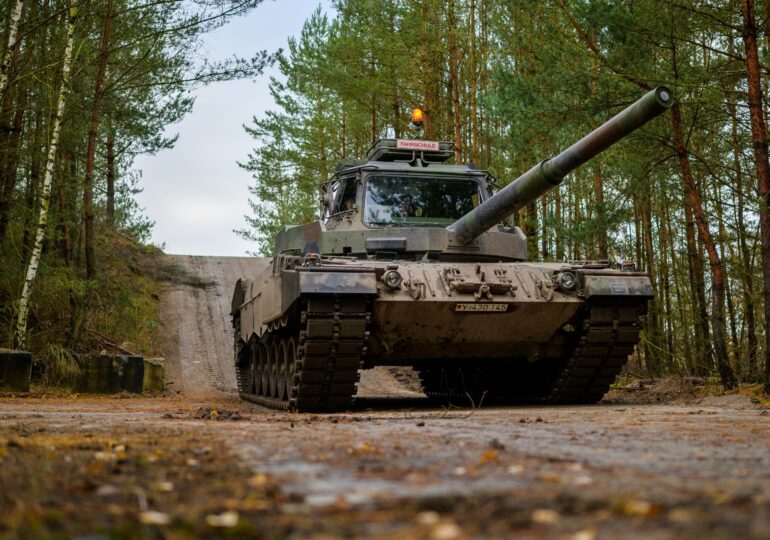Against the backdrop of increasing geopolitical tensions, Germany’s defense industry is experiencing a period of accelerated growth.
Military equipment exports reached 13.2 billion euros in 2024, according to preliminary data, more than double the level in 2020, at 5.82 billion euros, CNBC reports.
Stocks of defense companies listed on the stock exchange have seen strong growth in the past year, supported by a historic fiscal package adopted by the federal government aimed at strengthening defense and infrastructure.
For example, shares of Rheinmetall, Germany's largest defense contractor, have appreciated by over 260% in the last 12 months, while those of Hensoldt by 168%.
Where German weapons go
In the first quarter of 2025, 80% of Germany's arms exports were directed to "close partner countries," including EU states, Japan, Switzerland, Australia, New Zealand, South Korea, Singapore, and Ukraine.
The remaining 20% went to "other third countries," among which, according to government sources, are Qatar and Israel.
According to the SIPRI institute, between 2020 and 2024, Germany was the fifth largest exporter of heavy weapons in the world. The main markets during this period were Ukraine (19%), Egypt (19%), and Israel (11%).
Regarding the types of equipment exported, 41% were ships, followed by armored vehicles (16%), missiles (11%), and engines (9.5%).
Main German defense companies
Rheinmetall: Produces weapons, ammunition, and armored vehicles. In 2024, over a third of sales were in Germany, 46.6% in the rest of Europe, 9.6% in Asia and the Middle East, and the rest in America and Australia.
MTU Aero Engines: Supplier of engines for civilian and military aircraft. The military division saw over 13% growth in 2024. The EJ200 engines for Eurofighter aircraft are used by air forces in Europe, Kuwait, Oman, and Saudi Arabia.
Hensoldt: Specializes in sensor technology and electronic defense. 87.8% of its revenues in 2024 came from Europe, with the rest from the Middle East, Asia-Pacific, North America, and Africa.
Renk: Manufacturer of gearboxes for tanks and ships. In 2024, it generated revenues of 1.14 billion euros, with 27% of sales in Germany, 20% in the USA, and 11% in South Korea. It has customers in over 70 ground forces and 40 navies worldwide.
Thyssenkrupp Marine Systems (TKMS): A division of the industrial giant Thyssenkrupp, specialized in warship construction. In the first half of the fiscal year, nearly 60% of sales were in Europe, 18% in South America, and 15% in the Middle East and Africa.
Political controversies
Germany's increased involvement in global arms trade has sparked heated debates. Exports to Israel are highly contested, amid accusations of abuses in Gaza. Although Germany has been a historic supporter of Israel, Foreign Minister Johann Wadephul stated in May that he is open to a reassessment of these deliveries, even if they will continue.
Germany exports equipment to Israel produced by companies such as TKMS (Sa'ar 6 ships for the Israeli navy), Renk, and MTU (components for Merkava tanks).
Exports to Ukraine have also been hotly debated. Germany has become one of Kyiv's most important arms suppliers following the Russian invasion in 2022. Criticism has come from both the radical left (BSW) and the far right (AfD), calling for an end to deliveries and "ceasing the war supply."
Despite the disputes, the figures show a robust German defense industry, expanding and deeply interconnected with Western security systems.

